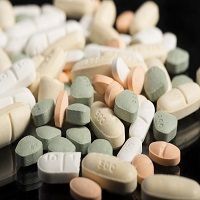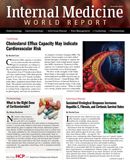Publication
Article
Internal Medicine World Report
Therapy and Medication Optimally Effective in Severely Depressed Patients
Author(s):
For patients with severe, non-chronic depression, a combination of cognitive therapy (CT) and antidepressant medicine (ADM) is more effective than sole ADM treatment, according to research published in JAMA Psychiatry.

For patients with severe, non-chronic depression, a combination of cognitive therapy (CT) and antidepressant medicine (ADM) is more effective than sole ADM treatment, according to research published in JAMA Psychiatry.
While previous research revealed the benefits of ADM, with one-third of patients going into full remission, half of ADM patients will relapse before recovery. CT, a possible remedy to medications’ shortcomings, has been deemed just as effective as ADM but has longer lasting effects on the patient, a Vanderbilt University (VU) press release pointed out.
For their study, Steven Hollon, the Gertrude Conaway Professor of Psychology at VU, and his colleagues included 452 participants with chronic or recurrent major depressive disorder (MDD). To compare the effects of CT and ADM therapy versus a singular ADM regimen, participants either underwent combined treatment (n=227) or were prescribed an ADM (n=225).
For similar studies — where scientists observe depressive patients for a set period of time – this study’s investigators followed-up with depressive subjects until they didn’t experience a relapse for 6 months – a process that took as long as 3 years – the release also mentioned.
Based on their comprehensive analysis, the researchers determined MDD participants treated with the combination therapy increased their recovery rate compared to only taking ADMs (72.6% vs 62.5%; t451 = 2.45; P = .01; hazard ratio [HR], 1.33; 95% CI, 1.06-1.68; number needed to treat [NNT], 10; 95% CI, 5-72).
“Patients who received combined treatment reported fewer serious adverse events than did patients who received ADMs alone (49 vs 71; P = .02), largely because they experienced less time in an MDD episode,” the authors reported.
Hollon commented that their findings indicated the synergistic remedy will improve symptoms for one-third of MDD patients, but would not affect two-thirds of depressed people. As a result, the researchers pressed for comparative research on CT monotherapies to further understand its value and benefits.
“Our findings suggest that CT engages different mechanisms than ADM but that it likely does so only in some patients. Identifying these mechanisms may suggest ways to enhance treatment response,” the authors wrote.





